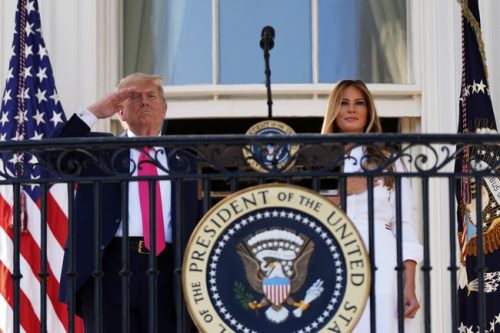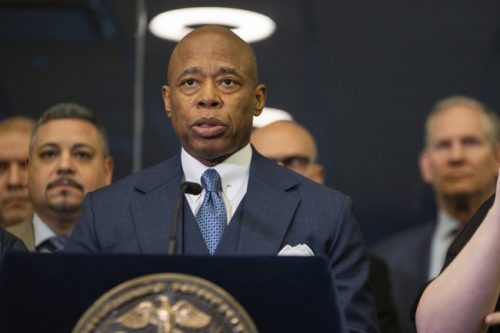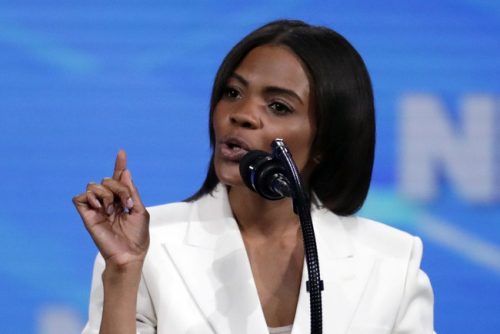The Minnesota Supreme Court just issued a ruling that shifts the playing field in a way many Republicans see as hostile to women’s sports and privacy, and the decision lands squarely at the feet of a court packed by Democratic appointees—many named by Governor Tim Walz. This piece reviews the ruling, the legal rationale the court used, and why conservatives say this undermines Title IX and the rights of female athletes. It also flags the broader political choices Democrats have made that, critics argue, prioritize ideology over women’s safety and fairness.
The court ruled that USA Powerlifting’s policy barring a transgender athlete from the women’s division is “facially discriminatory” under Minnesota’s Human Rights Act. Conservatives point out that the law in question is broad and was interpreted in a way that overrides private sports organizations’ sex-based divisions. That interpretation is the heart of the controversy: who decides what fairness looks like in sport, and how should state law treat sex-specific categories?
The Minnesota Supreme Court on Wednesday delivered a win to a transgender weightlifter, saying she’s protected by the state’s expansive human rights law, while the organization that banned her from competing in its women’s division said it still has a chance.
🚨 BREAKING: The Minnesota Supreme Court has ruled that USA Powerlifting’s ban on men competing in the women’s division is discrimination under the state’s Human Rights Act.
All seven Justices were appointed by Democrats, a majority by Tim Walz. pic.twitter.com/Na2YpUuHTo
— Dustin Grage (@GrageDustin) October 22, 2025
The high court found that USA Powerlifting’s policy that bars JayCee Cooper from competing in its women’s division is “facially discriminatory” under the Minnesota Human Rights Act. That law protects transgender individuals against discrimination based on sexual orientation.
While the court sent part of the case back to a lower court to determine whether USA Powerlifting has a “legitimate business purpose” for excluding JayCee Cooper, her attorneys said they won on the most important legal claim and that further proceedings won’t change the ultimate outcome.
Republicans are warning that this approach removes the safe, reasonable boundaries that protect women’s athletic opportunities. The practical impact is immediate: female athletes face new competitors whose biological advantages the court’s reasoning does not address. That creates a problem for fair competition and for programs built around sex-specific categories.
It’s hard to overstate how political this has become. The court’s lineup is tied to Democratic governors and political priorities, and critics say the outcome reflects those priorities rather than a commonsense balance between inclusion and fairness. Voters who care about women’s sports will see this as a policy choice with real consequences for girls and young women at all levels of competition.
This decision also raises federal questions. Conservatives argue it conflicts with the spirit of Title IX, which was designed to protect women’s access to sports and education programs. When state law interpretations tilt the playing field, lawmakers and courts in other states will likely watch closely to see if similar approaches spread.
Yes. Yes, he does.
Proponents of the ruling say it advances civil rights and inclusion, but opponents say that a strict textual reading of “sex” protections ignores biological reality. Men and women are not interchangeable in athletic competition; physical differences matter in speed, strength, and endurance. Ignoring those facts while imposing a legal framework that erases sex-based categories will create mismatches that hurt female competitors.
There’s also a practical problem for organizations that set rules for sport. If the court judges a policy “facially discriminatory” without accepting sex-separated divisions as a legitimate basis, leagues and federations will face difficult choices about safety, fairness, and liability. The court did send part of the case back to evaluate a “legitimate business purpose,” but many conservatives say that’s not a strong safeguard against broad reinterpretations of law.
On the political side, Minnesota’s leadership choices are under scrutiny. Governor Walz has been criticized for policy decisions perceived as bending toward progressive social agendas, and critics say appointments to the bench reflect those priorities. Voters who prioritize women’s rights and fair competition are watching whether elected officials will respond.
The Minnesota Supreme Court ruling against USA Powerlifting doesn’t promote fairness, it punishes truth.
No woman in weightlifting or any sport should ever have to compete against a weak man.
That statement captures the blunt concern driving the Republican critique: fairness for women is nonnegotiable, and courts or laws that erase sex distinctions in sport are seen as undermining that fairness. The Minnesota ruling is now a focal point in a larger national debate over how to balance inclusion with the protections Title IX was meant to guarantee.






